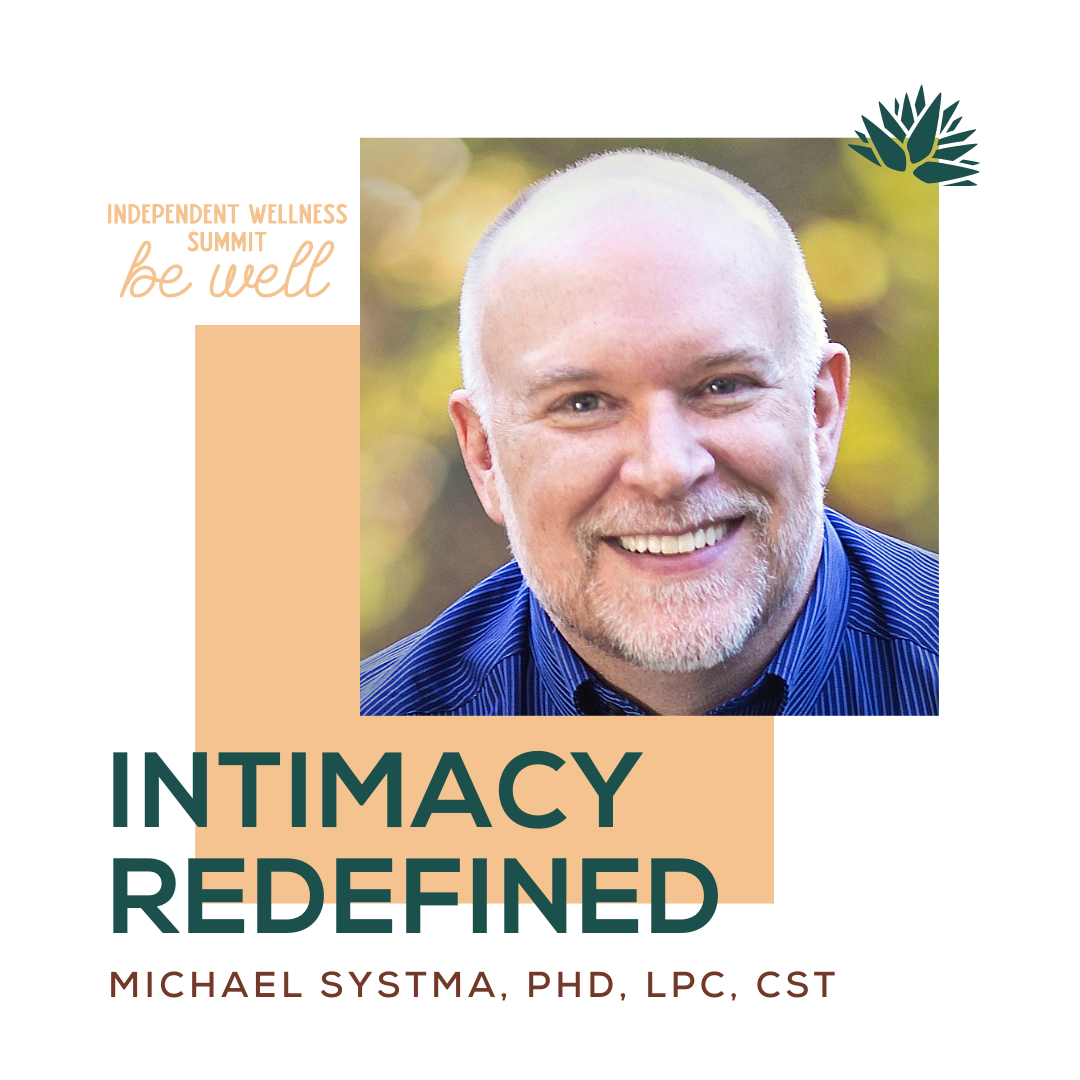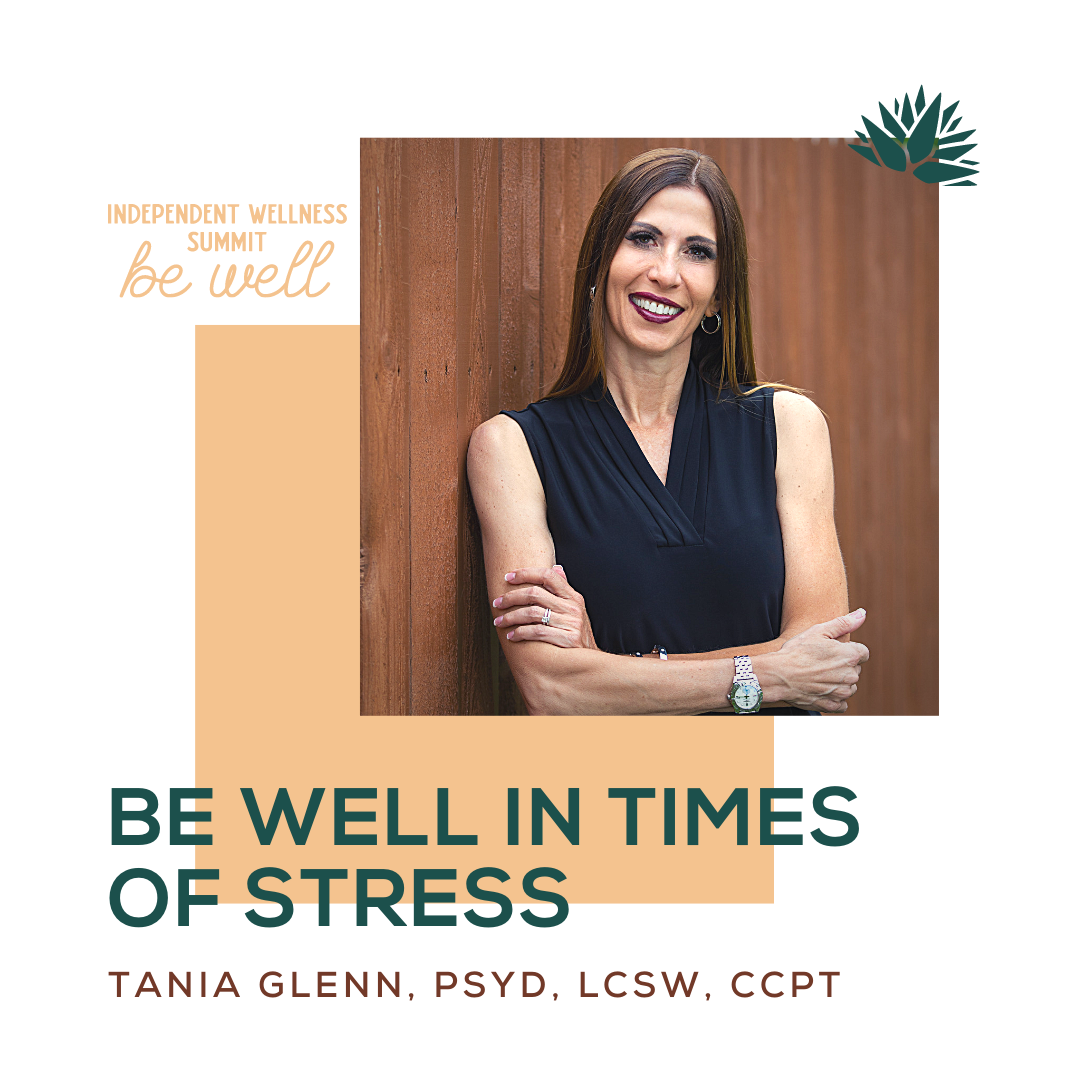We are almost done with the InDependent Wellness Summit recaps and Day Four was just as full of inspiration as the previous three days. If you missed Day One, Day Two, or Day Three, make sure to check out those recaps as well!
Day Four was all about being well in intimacy and in times of stress. There is no surprise that these are grouped together as military and first responder spouses live lives full of stress, whether inside or outside marriage. So let’s dive into these two interviews for today. We started with Dr. Mike Systma, a Licensed Professional Counselor in the state of Georgia and a Certified Sex Therapist. Dr. Systma has been working with couples in a variety of capacities since 1987. His Ph.D. from the University of Georgia is in Child and Family Development/Marriage and Family Therapy, where he specialized in marital sexual therapy.
Dr. Systma has a lot of experience counseling married couples on matters of sex and intimacy within their marriage. During all his years of experience, he has realized that many times, when a couple feels that their troubles lie with sexual intimacy, it usually stems from other areas of intimacy. Both sides need to lean into each other when it comes to their wants and needs, or it’s easy for the marriage to be lopsided. Dr. Systma says, “If either of them lock down and say ‘I won’t until you do,’ they move into a selfish stance, and the whole thing collides and crashes and then can’t move forward.”
He goes on to discuss other levels of intimacy, including finances and parenting. “Intimacy is not achieving the same goal that all of your friends have or every other couple on the block,” says Dr. Systma. You want to focus on making sure to regularly talk about these topics, while sharing your fears, goals and wants throughout the process. As military and first responder spouses, it makes sense to bring all these levels of intimacy into your discussion on wellness. Often you may be dealing with a lot of these matters on your own if your spouse is deployed or away for training. So by sharing your feelings with your spouse and absorbing their feedback, you grow closer together, even if you are physically apart.
So what can you do to make intimacy better? Dr. Systma discusses the importance of knowing the kind of intimacy you are after (did you know there are forty different kinds?) and then setting the scene to be able to discuss these with your spouse. He gives a lot of practical advice throughout the entire interview, with many examples of the different types of intimacy gleaned from his years of experience.
So what happens if, “Sometimes we’ve chosen a spouse that has zero interest in a type of intimacy that is important to us.” He discusses in depth what the two options are at that point—either grieve and move forward or rethink how things are. Add in any levels of betrayal in relationships and intimacy can be strained. You need to identify the wound that might be a barrier to intimacy. Dr. Systma also gives practical ways to move forward in these situations, including discerning the difference between grieving and repression.
One of the biggest lessons that Dr. Systma really wants you to take home is that, “Intimacy is not having the same mind. Intimacy is not doing what one person says or the other person says. Intimacy is figuring out how to accept the influence of each other and meld together and have a vision that allows us to continually grow and feed off each other.”
“Intimacy is not achieving the same goal that all of your friends have or every other couple on the block.” — Dr. Mike Systma
The second interview on Day Four discussed how to be well in times of stress. Dr. Tania Glenn is a first responder spouse and the president of Tania Glenn and Associates, PA, a clinical practice located in both Central Texas and the West Valley in Arizona. As a nationally recognized leading clinician in the treatment of Post-Traumatic Stress Disorder, Tania’s practice is focused on promoting resilience and healing in the first responder and veteran communities.
Dr. Glenn starts off the interview by sharing the things she has seen around the country over this last year in her work. As service member spouses, especially first responder spouses, this last year has been very difficult. From riots to overwhelming division throughout communities, the overall stress levels have been at an all-time high. She expressed that now, more than ever, first responders need to be ok with getting help and be armed with resources. With the combination of Covid-19 and national violence, there has been unprecedented stress and trauma over the last year. Dr. Glenn is pushing to help all those involved.
So, how do you help your spouse and also yourself? Dr. Glenn believes that, “Spouses are often the first people to notice struggles that the service member is experiencing.” When you notice that the baseline of “normal” has moved, it is time to have a discussion. Check in with how your spouse is doing. Ask them how they feel you are doing as well.
If you feel that there needs to be some changes or assistance with managing stress, Dr. Glenn gives some examples from her own life experience as a first responder spouse that are applicable in so many ways. One of these is connection. “When you are married to someone in public safety or in the military, it is a culture and a lifestyle. Nobody understands a firefighter’s wife better than a firefighter’s wife. Same with law enforcement and same with the military.” Connecting with other spouses going through a similar situation can help you process and cope more effectively.
As a service member spouse, you may not be aware of the stress you are carrying, and then one day, it will hit you and the weight can become unbearable. If your loved one has trauma, you will likely experience similar effects, because you are in tune with your spouse and therefore prone to absorbing their trauma. This can cause you to turn to unhealthy coping mechanisms, which Dr. Glenn discusses in detail.
Dr. Glenn recommends spouses also get help, whether through professional therapy or other means of dealing with stress when trauma happens, even if the trauma doesn’t directly happen to them. She says, “Everything coming into your house, you’re taking it on. So you have to have your time to heal as well.” You do not want to completely void yourself of these feelings, because it is important to be supportive and empathetic to your spouse, but there needs to be a balance. You need to know that sometimes you come first, and that includes getting help.
I love how Dr. Glenn helps listeners understand ways to recognize the stress that they feel, and how they can manage it in healthy and productive ways. There are four kinds of stress and each person deals with these differently. If you are dealing with any kind of stress (who reading this isn’t, right?) then this interview is a must-listen experience.
“Spouses are often the first people to notice struggles that the service member is experiencing.” — Dr. Tania Glenn
This is Day Four of the InDependent Wellness Summit for 2021! These topics can be hard to dive into at times, but both are so important. More recaps will be coming each day this week, so stay tuned. Make sure to read the recaps for Day One, Day Two, and Day Three if you missed them. Don’t forget, you can still sign up for the Wellness Lounge and receive access to all of the interviews FOR LIFE! Sign up here.


